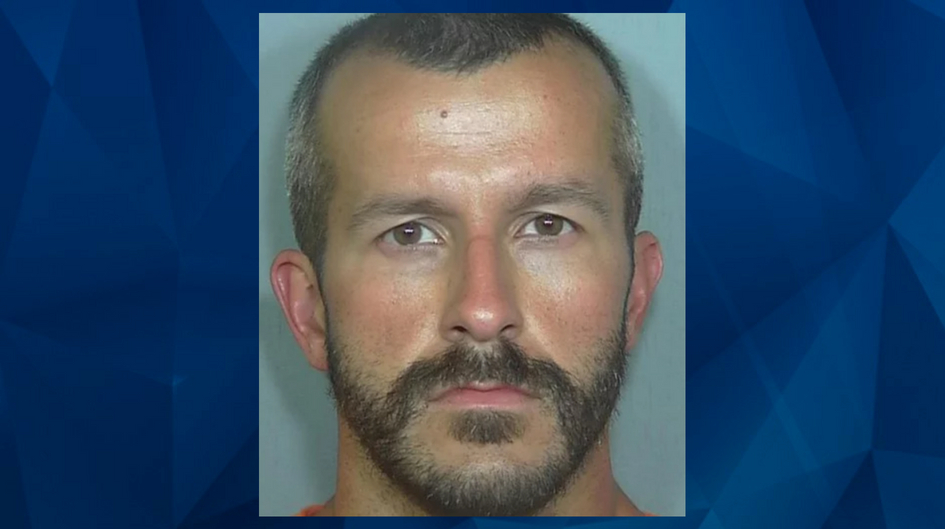The transcript of a polygraph test along with a conversation Chris Watts had with his father shows how the confessed family-killer changed his story about the events leading up the murder of his pregnant wife and two young daughters.
The Weld County District Attorney’s Office released nearly 2,000 pages of discovery documents in the Chris Watts murder investigation late last week. KUSA news shared a transcript of the polygraph test Watts voluntarily submitted to, along with supporting documents including a partial transcript of a jailhouse conversation with his father.
During the lengthy polygraph test, Watts repeatedly denied having anything to with the disappearance of his wife Shanann Watts and his daughters Bella, 4, and Celeste, 3. The 33-year-old insisted over and over again that he just wanted his family home and couldn’t imagine who might have wanted to hurt them. He also initially denied he had been having an affair. Only after he was permitted to speak with his father did Watts begin to confess that he had a role.
During the polygraph, which was administered on August 15, Watts gave a detailed account of going to a Colorado Rockies game with friends from work on Saturday, August 11, two days before the murders. Watts listed the names of the people who were at the game with him, and told detectives where his seats were and which team won the game. In reality, Watts had been with his girlfriend, Nichol Kessinger, that night. The documents would show that Shannan had seen a credit card charge from that dinner and asked her husband if he had gone with someone else, because the bill apparently seemed too high for one person.
The documents show that Chris knew that Shanann strongly, and correctly, suspected him of having an affair, but that he continued to deny he was involved with anyone else. He initially denied the affair during police questioning, but when he spoke to his father after the polygraph, he told him that the detectives knew he was having an affair.
It was during the conversation with his father, Ronnie Watts, which was recorded on audio and video, that Chris admitted to killing Shanann. He said he “freaked out and hurt her” after he saw her hurting Celeste on the little girl’s bed. According to the transcript, Chris first told his father that Shanann “smothered” the girls, but when Ronnie questioned him, Chris said she “strangled” them. According to the account he gave his father and investigators, Chris claimed only to see Shanann strangling Celeste, and claimed that Bella was already “gone.”
When detectives asked if either of his daughters may have been still alive when he put their bodies into an oil container, Chris said, “No, God, no, no, no, no, God no, God no.” He reportedly reiterated that there was no chance the girls were still alive when he disposed of their bodies.
According to the documents, Ronnie Watts appeared to be supportive of Chris’s claims that Shanann had killed her daughters, even suggesting that Shanann had possibly “planned” to do this, based on a photo he had seen of a doll in their home covered with a sheet. Ronnie reportedly told investigators that Shanann had posted the photo to Facebook and wrote in the post that Bella had arranged the doll that way. He said he didn’t believe Bella would have covered up the doll past its stomach with a sheet, because he had never seen her do that before.
Chris Watts also told investigators that his family had told him in the past they believed Shanann was unstable, and claimed a friend had said the same, before claiming “I don’t want to paint a bad picture of her.”
The documents suggest that the detectives did not believe Chris’s claims, as they repeatedly encouraged him to admit if he had hurt the girls.
Chris Watts pleaded guilty to all three murders on November 6, and was sentenced on November 17 to three life terms without the possibility of parole.



